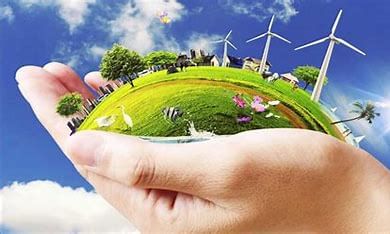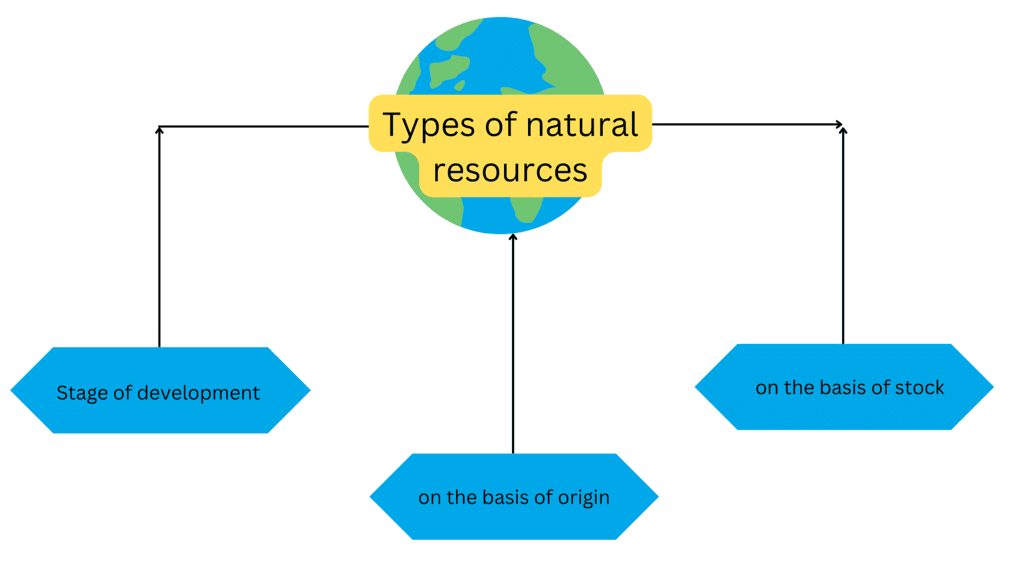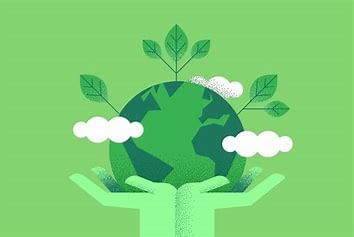UPSC Exam > UPSC Notes > Geography for UPSC CSE > NCERT Summary: Resources
NCERT Summary: Resources | Geography for UPSC CSE PDF Download
Resources
- Resources are defined as anything that can be used to satisfy a need.
- Utility or usability determines whether an object or substance is considered a resource.
- Example resources include water, textbooks, etc.
- While some resources like metals have economic value, others like a beautiful landscape may not, but both satisfy human needs.
- Some resources can gain economic value over time, for instance, traditional home remedies.

Factors Influencing Resources
- Time and technology play crucial roles in transforming substances into valuable resources.
- People themselves are the most significant resource, contributing ideas, knowledge, inventions, and discoveries that lead to the creation of more resources.
- Every invention leads to the development of many others, such as how the discovery of fire led to various cooking practices and other innovations.
Types of Resources
- Natural Resources
- Human Made Resources
- Human Resources
Natural Resources
- Natural resources are those drawn from nature and used with minimal modification.
- Many natural resources are gifts from nature and can be utilized directly. Sometimes, tools and technology are necessary to make the best use of a natural resource.

- Natural resources are categorized based on their level of development and use:
- Origin: Indicates where the resource comes from.
- Stock: Refers to the quantity of the resource available.
- Distribution: How the resource is spread out.
- Resources can be classified into two groups based on their development and use:
- Actual resources: Resources with a known quantity that are currently being utilized. For example, the dark soils of the Deccan plateau in Maharashtra.
- Potential resources: Resources with unknown quantities that are not currently being used due to technological limitations. For instance, the uranium found in Ladakh, which could be utilized in the future with advanced technology.
- Resources can also be classified based on their origin:
- Abiotic resources: Non-living resources like soil, water, and rocks.
- Biotic resources: Living resources such as plants and animals
- On the Basis of Stock:
- Renewable Resources: Resources like solar or wind energy that are unlimited and unaffected by human activities. Careless use of resources such as water, soil, and forests can deplete their stock.
- Non-renewable Resources: Resources like coal and petroleum that have a limited stock. Once depleted, they may take thousands of years to renew, making them non-renewable.
- On the Basis of Resource Distribution
- Ubiquitous Resources: Resources like air and water found everywhere.
- Localized Resources: Resources like copper and iron ore found only in certain places.
Question for NCERT Summary: ResourcesTry yourself: What are natural resources?View Solution
Human Made Resources
- Natural substances become resources only after their original form is altered. For example, iron ore becomes a resource after extracting iron from it.
- Technology is considered a human-made resource that enhances resource utilization.
Human Resources
- People utilize nature effectively through knowledge, skills, and technology, making them valuable resources.
- Education and health contribute to enhancing human resource value.
- Developing people's skills to create more resources is known as human resource development.
Resource Conservation
- Using resources carefully and giving them time to get renewed is called resource conservation.

- Sustainable development is the development meets the needs of present and also conserve them for the future.
- Principles of Sustainable development:
→ Respect and care for all forms of life
→ Improve the quality of human life
→ Conserve the earth’s vitality and diversity
→ Minimise the depletion of natural resources
→ Change personal attitude and practices toward the environment
→ Enable communities to care for their own environment. - It is our duty to ensure that:
→ All uses of renewable resources are sustainable
→ The diversity of life on the earth is conserved
→ The damage to natural environmental system is minimised.
Question for NCERT Summary: ResourcesTry yourself: What is resource conservation?View Solution
The document NCERT Summary: Resources | Geography for UPSC CSE is a part of the UPSC Course Geography for UPSC CSE.
All you need of UPSC at this link: UPSC
|
175 videos|624 docs|192 tests
|
FAQs on NCERT Summary: Resources - Geography for UPSC CSE
| 1. What are natural resources? |  |
Ans. Natural resources are substances or materials that exist in the environment and are essential for the survival and growth of living organisms.
| 2. Why is resource conservation important? |  |
Ans. Resource conservation is important to ensure the sustainability of resources for future generations, prevent depletion of natural resources, and minimize environmental impact.
| 3. How can individuals contribute to resource conservation? |  |
Ans. Individuals can contribute to resource conservation by practicing recycling, reducing energy consumption, using water efficiently, and supporting sustainable products and practices.
| 4. What are the different types of resources that need conservation? |  |
Ans. Resources that need conservation include water, forests, minerals, energy sources, and wildlife to maintain ecological balance and support human activities.
| 5. How does resource conservation contribute to sustainable development? |  |
Ans. Resource conservation plays a crucial role in sustainable development by ensuring the availability of resources for current and future generations and promoting a healthy environment for all living organisms.
Related Searches
















